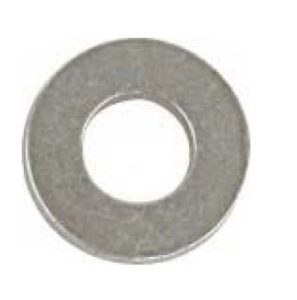
You can’t ignore the thickness when shopping for washers. Washers are available in different sizes. Some of them have a wider inside diameter than others, which allows them to accommodate equally wide screws and bolts. Some washers are also thicker than others. They feature a thicker ring of material, which affects their performance in several ways.
Strength
There’s a correlation between the thickness of a washer and its strength. Thick washers are typically stronger than their thin counterparts. They can handle heavier loads, making them ideal for heavy-duty fastening applications. For light- or medium-duty fastening applications, on the other hand, thin washers may suffice.
Spacing
Thick washers are better suited for use as spacers. Washers are multipurpose fasteners. One of their primary uses is to distribute the load of a separate fastener, such as a screw or bolt. Rather than driving a screw or bolt directly into an object, you can drive it through a washer, followed by the object. The washer will distribute the screw’s or bolt’s load so that the object is protected from damage.
Washers, however, can also be used as spacers. Thick washers are particularly useful for spacing applications because they take up more space. Rather than using many thin washers, you might be able to use just a couple of thick washers.
Cost
While thick washers are typically stronger and better suited for use as spacers, they cost more than thin washers. This is because they require more material in their construction. Washers are available in different materials, such as aluminum, steel and titanium. Regardless, thick washers are made of more material than thin washers, resulting in a higher cost of production.
Tight Tolerances
You may want to choose thin washers when dealing with tight tolerances. Not all objects have enough space to support thick washers. Many machines, equipment, furniture and other objects have tight tolerances that require small and thin washers. When shopping for washers, you should check the tolerances of the space where you intend to use them. Only then will you be able to choose the right size.
Durability
Thick washers offer a superior level of durability. They are more resistant to deformation under heavy loads than thin washers. All washers are exposed to loads during use. As the head of a screw or bolt presses against a washer, the washer may deform. Deformation, though, is less likely to occur with thick washers. They have thicker rings of material that are more resistant to deformation than thin washers.



